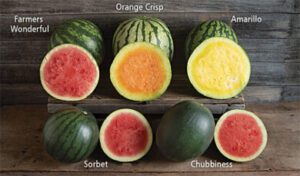Last updated on July 30, 2025
Picking the right seed, my friend, is like choosing the right foundation for your house; it sets the stage for everything that follows! When it comes to watermelon farming Nigeria, knowing what are the varieties of watermelon in Nigeria available to you, and more importantly, which one is the best watermelon for Nigerian farmers in your specific area, is absolutely crucial. Trust me, your variety choice can make or break your entire harvest. If you’re also thinking about when to plant those seeds, our guide on the best time to plant watermelon is a must-read.
You see, not all watermelons are created equal! Some handle heat better, some ripen faster, some give you a higher yield, and some just taste sweeter. Your choice of watermelon seeds in Nigeria directly impacts how well your crop will perform against local pests and diseases, how much water it needs, and even how much money you can make at the market.
So, let’s dive deep into the world of popular watermelon varieties in Nigeria and figure out which one is your best bet! For a step-by-step look at getting those seeds into the ground, check out our comprehensive guide on how to plant watermelon in Nigeria. And if you’re wondering about the ground itself, find out which type of soil is best for watermelon.
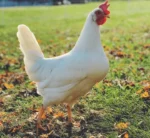

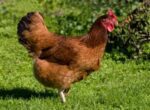


Quick Answer: What are the varieties of watermelon in Nigeria?
Nigeria boasts a range of watermelon varieties in Nigeria, including popular types like Kaolack, Sugar Baby, Crimson Sweet, Sweet Sangria F1, and Charleston Gray, among others. These varieties differ in size, maturity period, sweetness, and adaptability to Nigeria’s diverse climates.
Why Choosing the Right Watermelon Variety Matters So Much
Seriously, this isn’t just about what kind of watermelon you like to eat! Picking the right watermelon soil type is important (and you can learn more about that here: which type of soil is best for watermelon), and so is timing (which you can read more about in our guide on the best time to plant watermelon), but the variety itself is a huge piece of the puzzle for watermelon cultivation Nigeria.
Why picking the right variety changes everything
Different varieties are bred for different traits. Some are super disease resistant watermelon seeds, which is a big deal in humid parts of Nigeria. Others are known for high yield watermelon Nigeria, meaning more fruits per plant.



Some are specifically suited as watermelon types for hot climate, which is pretty relevant here! Your yield, the quality of your fruit, how much effort you need to put in, and ultimately, your profit margin, are all tied to this initial decision.
The link between seed type, climate, and market value
Your local climate – whether you’re in the drier North (like Kano or Kaduna) or the more humid South (like Rivers or Lagos) – will favor certain varieties over others. A variety that thrives in the North’s dry season with irrigation might struggle with fungal diseases during the South’s heavy rains.
Also, consider what the market wants! Are buyers in your area looking for large melons or smaller ‘icebox’ types? Is there a demand for extra sweet or seedless varieties? Knowing your market is key to picking a most profitable watermelon variety.
What Are the Varieties of Watermelon in Nigeria?
Alright, let’s talk specifics! While there are many types grown globally, here’s a look at some of the key watermelon varieties in Nigeria you’re likely to encounter. Understanding these options is vital when learning how to plant watermelon in Nigeria.

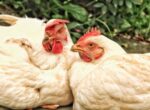
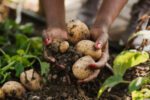
Full list of hybrid and open-pollinated types
You’ll find both hybrid and open-pollinated watermelon varieties in Nigeria. Hybrid seeds often offer improved vigor, yield, and disease resistance, but you can’t save the seeds for planting next year – you have to buy new ones. Open-pollinated varieties are more traditional, and you can save the seeds, but they might not be as uniform or disease resistant as hybrids.
Here are some common ones:
- Kaolack: Very popular, especially in the North. Known for high yield and good taste.
- Sugar Baby: An ‘icebox’ type, meaning smaller fruits. It’s early maturing and quite sweet.
- Crimson Sweet: A classic! Known for its sweetness and good heat tolerance. Crimson Sweet watermelon Nigeria is a reliable performer for many.
- Charleston Gray: An older, open-pollinated variety. It’s oblong with gray-green skin and has good shelf life.
- Sweet Sangria F1: A hybrid known for its juicy, deep red flesh and sweetness. Popular in some northern regions.
- Jubilee: Another oblong, open-pollinated variety with distinctive stripes. Takes a bit longer to mature.
Differences in size, skin, sweetness, and maturity
These varieties vary quite a bit!
- Size: From the small, round Sugar Baby to the larger, oblong Charleston Gray or Jubilee.
- Skin: Can be solid green (light or dark), striped (broad or thin), or even gray-green.
- Sweetness: This varies, though most popular watermelon varieties in Nigeria are selected for good sweetness. Brix levels (a measure of sugar) differ between varieties.
- Maturity: Some are early maturing (around 70-80 days), while others are later (90-100 days). This impacts your planting time and how many cycles you can get in a season. This ties back to choosing the best time to plant watermelon.
Local names and region-specific preferences
Sometimes, varieties go by local names, which can be a bit confusing! Farmers in different regions also have preferences based on what sells well and what grows best in their specific soil for watermelon Nigeria and climate. For instance, Kaolack watermelon is a firm favorite in many northern states due to its performance there.

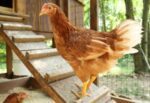



Top 5 Popular Watermelon Varieties for Nigerian Farmers
Based on what’s widely grown and performs well across different conditions in Nigeria, here are five top contenders:
1. Sugar Baby – Early maturing, small, and sweet
This is a great choice if you’re looking for a quicker harvest, perhaps for an earlier market window or if you have a shorter growing season. Sugar Baby produces smaller, round fruits that are super sweet. They’re also a good option if you have limited space.
- Benefits & Features: Sugar Baby is an “icebox” type, meaning it produces smaller, round fruits, typically weighing 6-10 pounds (about 3-5 kg). It has dark green skin and bright red, very sweet flesh with small seeds. It’s known for its early maturity, often ready to harvest in about 75-80 days.
- Pros: Early harvest means you can potentially get to market sooner or plant multiple successions. Its small size is great for home gardens or smaller households. It has a classic sweet watermelon flavor.
- Cons: Lower yield per plant compared to larger varieties. Smaller size might fetch a lower price per fruit in markets that prefer large melons.
- Demand: Consistent demand for its sweetness and convenient size, especially in urban areas or for direct-to-consumer sales.
- Best For: Gardeners with limited space, farmers targeting early markets, or those looking for a reliable, sweet, and relatively quick crop.
- Profitability: Can be profitable if marketed effectively, especially if the early harvest fetches a premium price. Lower yield per plant is offset by quicker turnaround.
2. Crimson Sweet – Heat-tolerant with good yield

A very reliable and widely planted variety. Crimson Sweet watermelon Nigeria is known for its classic sweet flavor and good yield potential. It handles heat reasonably well, making it suitable for many parts of the country.
- Benefits & Features: Crimson Sweet is a widely popular, open-pollinated variety producing round to slightly oval fruits, typically 15-25 pounds (7-11 kg). It has light green skin with dark green stripes and vibrant red, sweet flesh. It matures in about 80-85 days and is known for good heat tolerance.
- Pros: Excellent, classic sweet flavor. Reliable performance in warm climates. Good yield potential. Open-pollinated nature means farmers can save seeds (though saving seeds from F1 hybrids is not recommended as they won’t grow true to type). Good disease tolerance compared to some older varieties.
- Cons: Can be susceptible to certain diseases in very humid conditions if not managed. Size might be larger than some markets prefer.
- Demand: Very high and consistent demand across Nigeria due to its familiar taste and reliable quality. A market staple.
- Best For: General commercial farming, home gardens, and areas with good heat but not excessive, prolonged humidity. A great all-around performer.
- Profitability: Highly profitable due to consistent high yield and strong market demand. It’s a dependable cash crop.
3. Kaolack – Commercial favorite with high yield

If you’re focused on commercial watermelon farming Nigeria, Kaolack is definitely one to consider. It’s a high-yielding variety that performs particularly well in the northern savanna zones, especially under irrigation. Farmers often favor it for its consistent production.



- Benefits & Features: Kaolack is a popular commercial variety, particularly in Northern Nigeria. It produces large, oblong fruits, often weighing 20-30 pounds (9-14 kg) or more. It has a light green rind and sweet, red flesh. It matures in about 80-85 days and is highly regarded for its vigorous growth and high yield potential, especially under irrigation.
- Pros: Exceptional yield potential, making it very attractive for commercial farmers. Performs very well in the drier conditions of the North with irrigation. Good market acceptance for its size and sweetness.
- Cons: May be more susceptible to fungal diseases in high humidity/rainy conditions compared to varieties bred for those environments. Requires good management, especially irrigation, to reach its full potential.
- Demand: Extremely high demand in northern markets and for transport to other regions. A key variety in commercial watermelon farming Nigeria.
- Best For: Commercial farmers in Northern Nigeria with access to irrigation, aiming for high volume production.
- Profitability: Very high profitability due to its impressive yield, making it a most profitable watermelon variety when grown in suitable conditions with good management.
4. Sweet Sangria F1 – Juicy red flesh, popular in the North
This hybrid is gaining popularity, especially in the North. It’s known for its vibrant red, juicy flesh and sweet taste. As a hybrid, it often offers good uniformity and disease resistance.
- Benefits & Features: Sweet Sangria F1 is a modern hybrid known for its beautiful, deep red, juicy flesh and excellent sweetness. It typically produces elongated fruits weighing 18-22 pounds (8-10 kg). It has a striped rind and offers good uniformity in size and shape. Maturity is usually around 80-85 days.
- Pros: Superior internal quality (color, texture, sweetness). Good uniformity in fruit size and shape, which is attractive for market. Often has good disease packages, offering resistance to several common issues.
- Cons: As a hybrid, seeds are more expensive, and you cannot save them. Requires good fertility and management to maximize hybrid vigor.
- Demand: Growing demand, particularly in markets that appreciate high quality and sweetness. Fetches good prices.
- Best For: Commercial farmers looking for high-quality fruit and willing to invest in hybrid seeds and good management. Suitable for various regions with appropriate care.
- Profitability: Can be very profitable due to high quality and good market price, contributing to high yield watermelon Nigeria when managed well.
5. Charleston Gray – Long fruit, great shelf life

An older but still relevant variety. Charleston Gray produces large, oblong fruits with a distinctive gray-green rind. It’s known for having good handling and storage qualities, which can be an advantage if you need to transport your melons over a distance.
- Benefits & Features: Charleston Gray is an older, open-pollinated variety producing large, oblong fruits, often 20-30 pounds (9-14 kg). It has a distinctive solid gray-green rind. The flesh is red and sweet. It matures in about 85-90 days and is particularly known for its tough rind and excellent handling and shipping qualities.
- Pros: Durable rind makes it ideal for transport over long distances without bruising. Good size for commercial markets. Affordable, open-pollinated seeds.
- Cons: May be more susceptible to some modern diseases compared to newer hybrids. Flavor might be considered less intense than some sweeter varieties by some consumers.
- Demand: Consistent demand, especially in wholesale markets where durability for transport is a key factor.
- Best For: Farmers who need to transport their watermelons over long distances to market. Suitable for various regions.
- Profitability: Profitable due to its size and ability to reach distant markets in good condition, reducing post-harvest losses.
What Is the Most Popular Watermelon Variety in Nigeria Right Now?
Ah, the million-dollar question! What is the most popular watermelon variety in Nigeria right now? It’s a bit dynamic, influenced by market demand and seed availability, but based on recent trends and what I hear from farmers and agro-dealers, Kaolack watermelon is arguably the most widespread and favored commercial variety, particularly in the North.
Market demand, affordability, and farmer feedback
Kaolack’s popularity stems from its consistent high yield and good market acceptance. It performs reliably, which is key for farmers. While hybrid seeds like Sweet Sangria F1 are gaining ground due to potentially better traits, their higher seed cost can be a factor for some. Open-pollinated varieties like Crimson Sweet and Charleston Gray remain popular due to their affordability and proven performance over the years. Farmer feedback consistently highlights yield and market price as major drivers for variety choice.



Want to get a real feel for market demand? Before you plant, take a trip to your local markets! Talk to the vendors who sell watermelons. Ask them which varieties sell fastest, which ones customers ask for by name (if any!), and what size and appearance are most popular. This firsthand research is invaluable for picking a most profitable watermelon variety.
Seed availability and performance in 2025
As of 2025, seeds for varieties like Kaolack, Crimson Sweet, and various hybrids (including Sweet Sangria F1 and others from reputable seed companies) are widely available through agro-dealers across Nigeria. Performance in recent seasons continues to favor varieties adapted to managing moisture stress and common diseases, reinforcing the popularity of resilient types.
Expert recommendation from Nigerian agri-extension agents
Agri-extension agents often recommend varieties based on local soil conditions, typical rainfall patterns, and prevalent pests and diseases in a specific zone. They frequently suggest starting with proven performers like Kaolack or Crimson Sweet, but also encourage trying newer hybrids that offer specific advantages like enhanced disease resistance if seed cost is not a barrier.
Which Watermelon Seeds Are Best to Plant in Nigeria?
Choosing the best watermelon seeds in Nigeria depends heavily on your specific situation. This decision goes hand-in-hand with knowing the best time to plant watermelon and how to plant watermelon in Nigeria.




Rainy season vs dry season planting
- Rainy Season: For rainy season watermelon planting, especially in the South (like Ogun or Abia states) or during peak rains in the North, look for varieties with good resistance to fungal diseases, as high humidity is a challenge. Drainage in your soil for watermelon Nigeria is also critical here (learn more about soil here: which type of soil is best for watermelon). As Farmer Ngozi in Benue showed, selecting a disease-resistant type and focusing on timely disease management can lead to excellent rainy season yields.
- Dry Season: For dry season watermelon farming with irrigation, varieties that perform well under consistent watering and benefit from lower humidity are excellent. Kaolack is a prime example of a variety that thrives in the dry season in the North (think Kano or Jigawa). Farmer Aminu in Kano, for instance, achieved impressive dry season yields using a high-performing hybrid with consistent irrigation.
Disease resistance and climate compatibility
Always check the seed packet or ask your seed supplier about the variety’s disease resistance profile. Choosing seeds resistant to common local diseases can save you a lot of headaches and reduce the need for chemical sprays. Ensure the variety is also compatible with your local climate’s temperature range and sunlight hours.
Hybrid vs open-pollinated: What works better?
Both have their place. Best hybrid watermelon seeds often give you more predictable results, higher yields, and better disease resistance. However, they are more expensive, and you can’t save the seeds. Open-pollinated watermelon seeds are cheaper, and you can save seeds, but results can be more variable, and they might be more susceptible to diseases. For commercial scale, many farmers lean towards hybrids for their reliability and yield potential, while smaller growers or those prioritizing seed saving might prefer open-pollinated types.
What Is the Highest Yielding Watermelon Variety?
Everyone wants to know what is the highest yielding watermelon! While yield is influenced by many factors (soil, water, fertilizer, pest control), some varieties have the genetic potential for higher yields than others.
Varieties with record yields in Nigeria
In Nigeria, hybrid varieties often have the potential for the highest yielding watermelon crops under optimal conditions. Varieties like Kaolack are known for their impressive yields, especially in the irrigated fields of the North. Some newer F1 hybrids available through reputable seed companies also boast very high yield potential.



Case studies from farmers in Kaduna, Kano, and Benue
From what I’ve gathered talking to farmers and extension workers, farmers in states like Kano and Jigawa, utilizing irrigation during the dry season and planting high-yielding varieties like Kaolack or specific hybrids, consistently report impressive yields. For instance, imagine Farmer Aminu in Kano, who achieved a yield of 28 tonnes per hectare last dry season using a popular F1 hybrid and consistent drip irrigation on his sandy loam soil. Meanwhile, in Benue, Farmer Ngozi successfully harvested 22 tonnes per hectare during the rainy season by selecting a disease-resistant Crimson Sweet type and focusing on timely fungicide applications. These aren’t just numbers; they show how the right variety, combined with good management adapted to the local conditions, translates into real results on the ground.
How fertilizer, irrigation, and spacing affect output
Remember, even the highest yielding watermelon variety won’t perform well without proper care. Adequate and balanced fertilization (NPK for watermelons is key!), consistent drip irrigation watermelon (especially in the dry season), and correct watermelon spacing all play a huge role in maximizing yield. You can’t just rely on the seed; you have to support the plant!
Which Watermelon Is the Easiest to Grow in Nigeria?
If you’re just starting out or prefer a less demanding crop, you might be asking which watermelon is the easiest to grow in Nigeria.
Beginner-friendly options for first-time farmers
Generally, open-pollinated varieties like Crimson Sweet or Sugar Baby are often considered easier for beginners. They are less finicky than some hybrids and have a good track record of performing reasonably well even if conditions aren’t absolutely perfect. Their seeds are also more affordable, reducing the initial investment risk.

Low-maintenance varieties and why they succeed
Varieties that show good natural resistance to common pests and diseases in your area will inherently be lower maintenance. Choosing a variety known for its resilience can save you a lot of trouble with crop protection. Early maturing varieties can also feel easier because you get to harvest sooner!
Tips to reduce risk of crop failure
Beyond choosing an easy variety, good practices like proper soil preparation (and knowing which type of soil is best for watermelon), timely planting (using our guide on the best time to plant watermelon), and consistent watering (even if just manually) are crucial for reducing the risk of crop failure, especially for beginners. Don’t skip those fundamental steps!
What Is the Best Watermelon Variety for Zone 6 Nigeria?
Nigeria doesn’t use the USDA plant hardiness zone system (like Zone 6). Our climate is categorized differently, primarily based on rainfall and temperature patterns, dividing the country into zones like the Sahel, Sudan Savanna, Guinea Savanna, Derived Savanna, and the Humid Forest zones.
Climate zones in Nigeria and how they affect watermelon growth
Watermelon thrives in warm climates, so it grows well across much of Nigeria. The key difference is managing moisture and humidity.
- Northern Zones (Sahel, Sudan Savanna): Drier, hotter conditions. Irrigation is often necessary, especially during the dry season. Varieties that perform well under irrigation and benefit from lower humidity (like Kaolack) are suitable for states in these zones (e.g., Borno, Yobe, Kano, Katsina).
- Southern Zones (Humid Forest, Derived Savanna): Higher rainfall and humidity. Fungal diseases are a bigger challenge. Varieties with good disease resistance are crucial. Proper soil drainage for melons is also vital here (and you can learn more about that here: which type of soil is best for watermelon) for states in these zones (e.g., Rivers, Cross River, Ogun, Abia).
So, instead of asking what is the best watermelon variety for Zone 6, think about which Nigerian climate zone you are in and choose a variety adapted to managing either drought (with irrigation) or high humidity and rainfall.
Recommendations for the savannah and semi-arid regions
In the northern savanna and semi-arid regions (like parts of Kaduna, Bauchi, or Gombe), where irrigation is common, varieties like Kaolack and many commercial hybrids bred for these conditions are highly recommended. They can leverage the intense sunlight and controlled water supply to produce high yields.
Soil and pest considerations per region
Your local soil type within these zones will also influence variety choice and management. Pests and diseases vary by region too, so selecting varieties with resistance to prevalent local issues is a smart move.
What Is the Most Expensive Type of Watermelon (Worldwide vs Nigeria)?
This is a fun one! What is the most expensive type of watermelon? Globally, you hear about luxury watermelons selling for crazy prices!
Global luxury varieties: Densuke, Black Diamond, Yellow Doll
Indeed! The Densuke watermelon from Japan, a black-skinned, exceptionally sweet melon, can sell for thousands of dollars! Other luxury types include certain Black Diamond varieties or specialty yellow-fleshed types like Yellow Doll, which fetch higher prices due to rarity, taste, or appearance. These are definitely luxury watermelon types.
Could these be grown in Nigeria? Market potential insights
Could these be grown in Nigeria? Technically, yes, if you can import the seeds and provide the exact specific growing conditions they require (controlled environment, specific nutrients, etc.). But is there a market for a watermelon selling for thousands of dollars in Nigeria? Probably a very, very niche one, if any. The logistics and cost would be immense.
Is there a niche export market for premium melons?
Perhaps. If a Nigerian farmer could successfully grow a high-quality, unique watermelon variety that meets international standards, there might be a small niche export market. However, the focus for commercial watermelon farming Nigeria remains on producing high yields of popular, good-tasting varieties for the local and regional markets, where demand is high and consistent. The most profitable watermelon variety for most Nigerian farmers is one that grows well locally and sells reliably in nearby markets.
Where to Buy Watermelon Seeds in Nigeria (Safely)
Finding reliable watermelon seeds in Nigeria is paramount. You don’t want to waste your time and resources on seeds that won’t germinate or produce poor plants.
Trusted seed suppliers and agro dealers
Look for reputable seed companies and established agro-dealers. They stock seeds from known breeders and often store them correctly to maintain viability. Ask other successful farmers where they buy their seeds. Companies like Premier Seed Nigeria Limited and Maslaha Seeds are examples of Nigerian seed companies.
How to avoid counterfeit or low-germination seeds
Counterfeit seeds are a real problem. Buy from trusted sources, check the packaging for authenticity, and look for information like germination rates and expiry dates. A simple germination test yourself before planting a large area can save you heartache. Take a small number of seeds, place them on a moist paper towel, fold it, put it in a plastic bag, and keep it warm. Check after a few days to see how many sprout.
What to look for on the seed packet
A good seed packet will have the variety name, whether it’s hybrid or open-pollinated, days to maturity, key disease resistances, and often recommended spacing. This information is your guide!
Final Thoughts: What Are the Varieties of Watermelon in Nigeria & Which One Should You Choose?
Alright, we’ve covered the landscape of watermelon varieties in Nigeria. Understanding your options is the first big step towards a successful harvest.
Summary of top picks for different goals: market, ease, yield
- For high commercial yield, especially in the North with irrigation: Kaolack watermelon and high-yielding hybrids.
- For beginners or easier growth: Open-pollinated types like Crimson Sweet or Sugar Baby.
- For specific traits like early maturity or disease resistance: Explore different hybrid options from reputable suppliers.
Decision guide: climate, soil, and buyer demand
Your choice boils down to a few key factors:
- Your Climate: Rainy season vs. dry season, humidity levels.
- Your Soil: Drainage and texture (though you can improve soil! Remember to check out which type of soil is best for watermelon).
- Buyer Demand: What do people in your market want?
- Your Resources: Irrigation availability, budget for seeds and inputs.
Create Your Personalized Variety Decision Guide
To help you make the best choice for your farm, I recommend creating your own personalized variety decision guide. Take the factors above – climate, soil type, market demand, and your resources – and list the varieties you’re considering. Then, evaluate each variety against these factors based on the information here and from your seed supplier. This tailored approach will help you select the best watermelon for Nigerian farmers like you! Getting the right variety is a crucial decision in watermelon farming Nigeria. It’s exciting to think about the potential! By doing your homework and choosing wisely, you’re setting yourself up for a sweet and profitable season. Happy planting!
